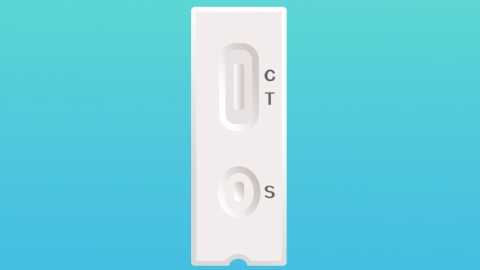Can pregnancy be detected if the menstrual period is delayed by three days?
Generally, whether pregnancy can be detected three days after a missed period depends on the testing method and individual circumstances. If pregnancy is possible and the test result is unclear, it is recommended to seek medical advice or repeat the test. Detailed analysis is as follows:

If an early pregnancy test strip is used, and the individual has a regular menstrual cycle with normal ovulation timing and early embryo implantation, the human chorionic gonadotropin (hCG) level in the body may have significantly increased, making it possible to detect pregnancy three days after a missed period. Early pregnancy test strips determine pregnancy by measuring the hCG concentration in urine. When hCG levels reach detectable levels, the test strip will display a positive result, which commonly occurs in individuals with a stable menstrual cycle and early conception.
If a B-ultrasound examination is chosen, or if the individual has an irregular menstrual cycle with delayed ovulation and late embryo implantation, the hCG level in the body may not have significantly increased yet, making it possible to obtain a negative result even three days after a missed period. B-ultrasound must observe a gestational sac within the uterus to confirm pregnancy, which typically has not formed by three days after a missed period. Additionally, with insufficient hCG levels, even early pregnancy test strips may yield a false-negative result, necessitating retesting after several days.
When performing a pregnancy test, it is recommended to use first-morning urine, as it contains a higher concentration of hCG, resulting in more accurate test results. If the test result is negative but menstruation has not occurred, retesting after an interval of 3–5 days is advised.








